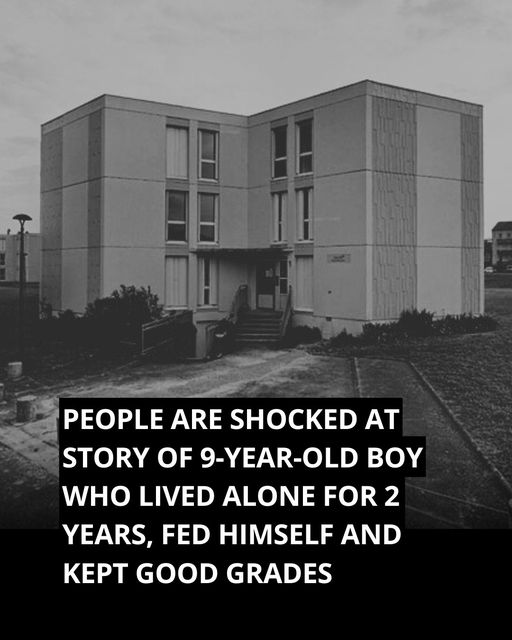A nine-year-old boy in southwestern France lived alone for two years in a cold, unheated apartment after his mother abandoned him to be with her boyfriend. The child managed to survive on his own in the apartment located in Nersac, near Angoulême, while his mother, aged 39, moved just three miles away. The situation finally led to her being sentenced to six months in prison for abandoning and endangering her son. Meanwhile, the boy’s father, who lived in a different town, faced no legal charges.

From 2020 to 2022, the young boy endured harsh living conditions, often without hot water, heating, or even electricity. With no parental support, he had to rely on his resourcefulness—washing in cold water and using sleeping bags and blankets to keep warm during the chilly winters. To feed himself, he resorted to stealing tomatoes from a nearby balcony and scavenging for food from neighbors. The boy’s condition was eventually discovered when concerned neighbors reported the situation to the authorities, leading to the child being taken into protective care.
Despite his hardships, the boy managed to maintain a sense of normalcy, attending school regularly. He kept himself clean, maintained good grades, and completed his homework, which likely helped him go unnoticed. The town’s mayor, Barbara Couturier, noted that the boy seemed to have created a facade of stability, giving off the impression that everything was fine. “I think it was also a kind of protection that he put around himself to say ‘everything is fine,’” she explained.
The case only came to light thanks to the vigilance of neighbors who suspected something was wrong. Despite approaching the boy’s mother, they were dismissed and told to stay out of her personal affairs, as she claimed she was caring for her son. Locals suggested that the neglect remained undetected partly due to the boy’s ability to manage on his own.
A classmate later shared that the boy often ate meals alone, took the bus by himself, and rarely left the house, preferring to stay home. During the mother’s trial, mobile data revealed that she had spent limited time at the apartment, contradicting her claim of living with her son. “He told his mates that he ate his meals alone and took the bus alone. He didn’t go out and stayed home all the time,” the classmate recalled.
Neighbors expressed regret and guilt for not recognizing the severity of the situation earlier, attributing the lack of awareness to the increasing anonymity of modern life. “When there was a family and a village around, if a mother neglected her child, others stepped in to help. But that’s not how it works today,” said one local resident.
A survey by the University of Nottingham across 10 EU countries (including Bulgaria, Czech Republic, Denmark, France, Hungary, Lithuania, Poland, Romania, Slovakia, and the UK) shows that many countries lack a clear legal definition of child abandonment. This ambiguity poses challenges for researchers and professionals working to address the issue.
Child abandonment is a major factor leading to institutional care for children under three. A comparison of Western and Eastern European countries revealed significant differences: only 4% of children were abandoned in Western Europe, while 32% faced abandonment in Central and Eastern Europe. Romania, Hungary, and Latvia reported the highest rates of children in institutional care, while countries like Denmark, Norway, and the UK reported lower cases of abandonment.
Efforts to prevent child abandonment are underway across the EU, with measures including social assistance, daycare facilities, family support services, and mother-baby units. Other initiatives involve financial support, parental training centers, and helplines to provide guidance to at-risk mothers. Hospital staff are also being trained to recognize high-risk situations and offer positive counseling.





